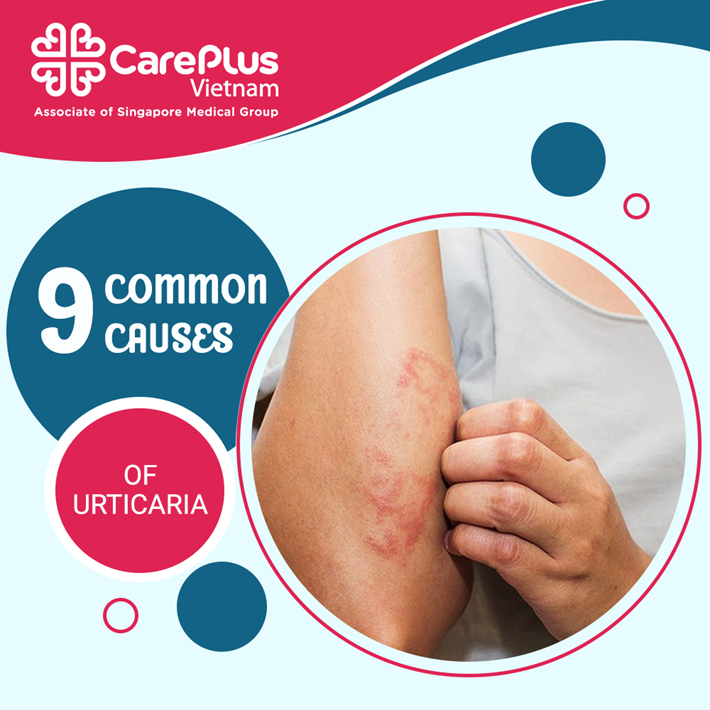9 Common causes of urticaria
Urticaria (also known as urticaria) is a common disease, although not dangerous, but urticaria makes patients itchy and uncomfortable. To control as well as prevent this disease, let's take a look at the causes of the disease with CarePlus, the patient needs to find the cause of the disease as well as how to treat allergies and urticaria to minimize the danger that the disease causes. out.

5/19/2022 9:33:46 AM
1. Due to food
When there is a food allergy, the body's immune system will identify the food as a foreign factor and form an allergic reaction to fight them. It can be said that hives are a common symptom of food allergies. Some protein-rich foods that are easy to cause allergic reactions are seafood, peanuts, chicken skin, eggs, etc.
2. Due to drugs
All drugs can cause urticaria. The most common are antibiotics. Medicines for colds, arthritis, and blood pressure can all cause urticaria. Sometimes a person is only allergic to farmed shrimp, not to marine shrimp due to antibiotic residues in livestock products.
Drug-induced urticaria usually occurs immediately after taking the drug or several days after taking it.
3. Due to respiratory agents
Inhalation of allergens such as pollen, house dust, warehouse dust, feathers, smoke, mold, fragrance. Therefore, to prevent this disease, the patient should clean the accommodation regularly.
4. Due to infection
Viral infections such as hepatitis B and C; bacterial infections in the ears, nose, and throat; digestive organs, teeth, mouth, urinary tract, genitals, intestinal parasites (worms, flukes) or fungal infections of the skin and internal organs. Infections are sometimes latent, undetected.
5. Due to the venom
From the bites of some insects such as mosquitoes, fleas, bees, ants, worms. Often the cause is easy to spot. Some species as small as bed dust mites are sometimes missed.
6. Due to chemical exposure
From cosmetics, lipsticks, powders, perfumes, hair dyes, nail polishes, pedicures, soaps, etc. Food colorings and food preservatives can also cause urticaria.
7. Due to physical agents
- Due to pressure and pressure, skin rash. Patients should wear loose-fitting clothes if this is the case.
- Due to movement, emotions such as fatigue, exertion, stress.
- Due to cold, due to heat, due to sunlight, due to water (weather change, rain, bathing).
8. Due to systemic diseases
Urticaria can appear because the patient has a systemic disease such as lupus erythematosus, diabetes, hyperthyroidism, vasculitis...
9. Heredity
If someone in the family has had urticaria, the possibility that a family member will have the disease is not small.
Although not a dangerous, life-threatening disease, urticaria seriously affects the patient's life (loss of aesthetics, itching, discomfort). Patients with symptoms such as redness, itching, discomfort, etc. need to go to a medical facility with a specialty in Dermatology to be examined and tested to find out the direct cause of the disease.
Register to visit a dermatologist for effective diagnosis and treatment of skin diseases via Hotline 18006116.